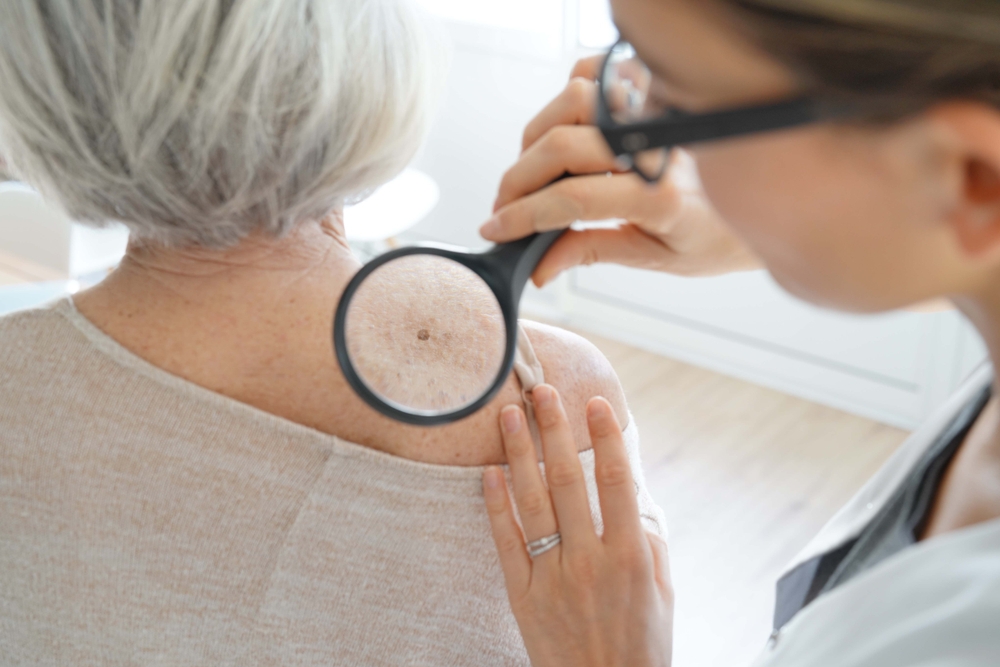
Imagine going to the doctor because you're worried about a spot on your skin. You trust them to tell you if it's something serious, like skin cancer. But what if they don't catch it? What if that spot was cancerous, and it gets worse because it wasn't diagnosed early? This situation is more than just a medical error; it's a life-altering oversight that could have been prevented. Skin cancer, when identified early, can often be treated successfully. The key to beating it often lies in that early detection. Unfortunately, when doctors miss the signs, the delay can lead to severe consequences, affecting not just your health but every aspect of your life. This blog post aims to guide those affected by undiagnosed skin cancer through understanding their legal rights and the steps they can take to seek justice and compensation in a medical malpractice claim.
Understanding Medical Malpractice with Undiagnosed Skin Cancer
Medical malpractice happens when a healthcare professional doesn't provide the standard level of care expected of them, leading to harm to a patient. In the world of skin cancer, this could mean a doctor overlooking a mole that's changing in size, shape, or color, not ordering the right tests, or misreading test results. These mistakes can delay the treatment you need, letting the cancer grow and spread.
Doctors and other healthcare providers have a critical job in spotting skin cancer early. Their expertise and attention to detail can mean the difference between a condition that's manageable and one that becomes a serious threat to your health. When they miss the mark, the impact goes beyond the physical. It can lead to emotional stress, financial burden due to increased medical bills, and the loss of trust in those meant to protect your health. This is why it's so important for patients to know their bodies, ask questions, and advocate for themselves. It's also why knowing your rights is crucial.
Your Legal Rights in Pennsylvania
If you're in Pennsylvania and you've suffered because a doctor failed to diagnose your skin cancer, you have rights. The law says that healthcare providers must give you care that meets professional standards. If they don't, and their failure leads to harm, that's considered a breach of their duty of care. This breach can be the basis for a medical malpractice claim.
In Pennsylvania, you generally have two years from when you discover (or should have discovered) the mistake to file a lawsuit. This time limit, known as the statute of limitations, is strict. Missing this deadline can mean losing your chance to seek compensation. That's why acting quickly and getting legal advice as soon as you suspect something went wrong is so important.
Proving Medical Negligence in Skin Cancer Cases
To establish medical negligence in a skin cancer misdiagnosis case, four things must be proven:
- Duty: Show that the healthcare provider owed you a duty of care.
- Breach: Prove that they didn't meet the standard of care expected, making a mistake or oversight.
- Causation: Link their mistake directly to the harm you suffered.
- Damages: Demonstrate the specific ways you were harmed, including physical, emotional, and financial impacts.
Building a strong case often requires medical records, expert opinions, and detailed documentation of how the oversight affected your health and life. It's not always easy to prove these points, especially when facing well-defended healthcare providers and their insurance companies. This is where having an experienced attorney becomes invaluable. They know how to gather the necessary evidence and present a compelling case on your behalf.
What to Expect from the Legal Process
The journey through a medical malpractice lawsuit can seem daunting, but knowing what to expect can make it less intimidating. Here's a simplified overview:
- Consultation: It starts with meeting an attorney to discuss your case. This is when you'll share your story, and they'll assess the strength of your claim.
- Filing the Lawsuit: If you decide to proceed, your attorney will file a legal complaint against the healthcare provider(s) responsible for the oversight.
- Discovery: Both sides exchange information through documents, depositions, and expert testimonies. This phase is about building your case and preparing for trial.
- Negotiation and Settlement: Many cases settle out of court. Your attorney will negotiate with the other side to try to reach a fair compensation amount without going to trial.
- Trial: If a settlement isn't reached, your case will go to trial. Here, both sides present their evidence, and a judge or jury makes a decision.
Each step involves comprehensive legal work, from gathering evidence to arguing your case. An experienced attorney will guide you through each phase, fighting for your rights and working towards the best possible outcome.
Contact Anapol Weiss Today For a Free Consultation About Your Medical Malpractice Case
If you or a loved one has suffered due to an undiagnosed case of skin cancer, you understand the pain, frustration, and fear that comes with medical negligence. At Anapol Weiss, we stand with you. Our Philadelphia medical malpractice attorneys are more than just legal advisors; we're your advocates, your champions, and your partners in this critical fight for justice.
With decades of experience in medical malpractice law, Anapol Weiss has built a reputation for holding negligent healthcare providers accountable and securing the compensation our clients deserve. Our team understands the complexities of medical malpractice cases, especially those involving undiagnosed skin cancer. We're here to navigate the legal system on your behalf, providing personalized attention and relentless representation every step of the way.
Your fight for justice is our fight. Let us help you turn your experience into action. Contact us today for a free consultation. Together, we can explore your legal options and work towards securing not just compensation, but a sense of closure and justice. Remember, you're not alone. Anapol Weiss is here to stand by your side and advocate for your rights.
